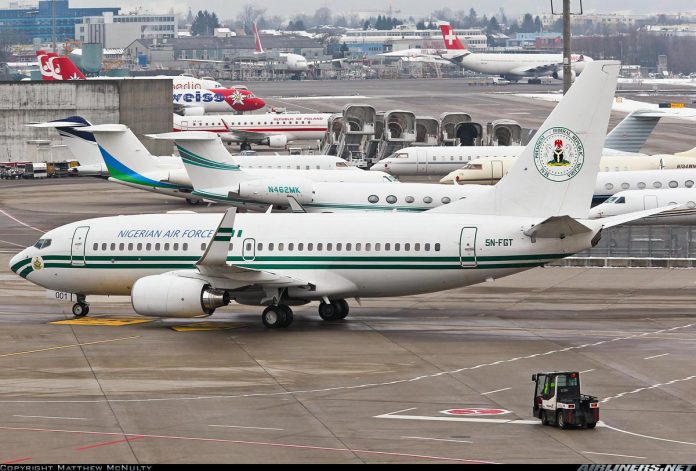The Federal Government has announced its decision to sell three ageing jets from the presidential air fleet, a move aimed at reducing the high costs associated with maintaining the fleet.
The decision was revealed amidst recommendations from both the House of Representatives and the Senate Committee on National Security and Intelligence, advocating for the procurement of new aircraft for the President and Vice-President’s use.
The aircraft identified for sale include a Boeing 737 Boeing Business Jet (BBJ), which is the President’s designated aircraft, a Gulfstream, and a Falcon 7x.
This sale would effectively reduce the presidential fleet, currently comprising six airplanes and four helicopters, by half.
The fleet has been under scrutiny, with insiders noting that at least half of the fleet consists of unserviceable or failing aircraft.
According to The Cable, the federal government has contracted JetHQ, a prominent US-based airline marketer, to oversee the sale of these three aircraft.
An exclusive marketing agreement has been signed, granting JetHQ the authority to value and market the planes.
Preliminary offers for the aircraft are already under review, with the government seeking optimal deals to benefit the public treasury.
This move comes as legislators push for modernizing the fleet following several incidents involving the current fleet’s aircraft, which raised safety concerns.
These incidents have sparked a debate on the necessity and timing of purchasing new aircraft, given the nation’s economic challenges.
While some lawmakers stress the importance of safety for national leaders, others argue that the timing may reflect insensitivity to broader economic hardships faced by the populace.
Proceeds from the sale are expected to fund the purchase of at least one new jet, with officials stating that buying two new aircraft simultaneously is financially untenable.
“Yes, we have received two offers for the BBJ and one for the Falcon X. But the NSA insisted that we must press for a better deal instead of rushing to have a bad deal for the government,” an PAF official involved with the process said on condition of anonymity.






